Attending a yoga class or walking into a gym can be daunting – perhaps even more so as you get older. However, making it a habit to stay active as you age brings many benefits, from relieving chronic pain to alleviating stress, and this holds true no matter how old you are. Beyond physical health, setting these goals can also empower you to feel more in control and have more confidence, improving your overall quality of life.
Most importantly, anyone can enjoy an active lifestyle, whether you’re a complete fitness junkie or have been inspired to start a brand-new healthy habit. If you don’t know where to start, we’ve compiled several tips to help you figure out how to kick-off your personal health journey
Don’t forget to log your activity in the wellness journey on the Asia Miles by Cathay app to earn miles. Enrol in select Cigna health insurance plans to earn 5X more Asia Miles, and stay tuned for the next round of personal challenges on the app, where you’ll be able to earn bonus miles upon completion of each task.

Credit:BJI Blue Jean Images/Getty Images
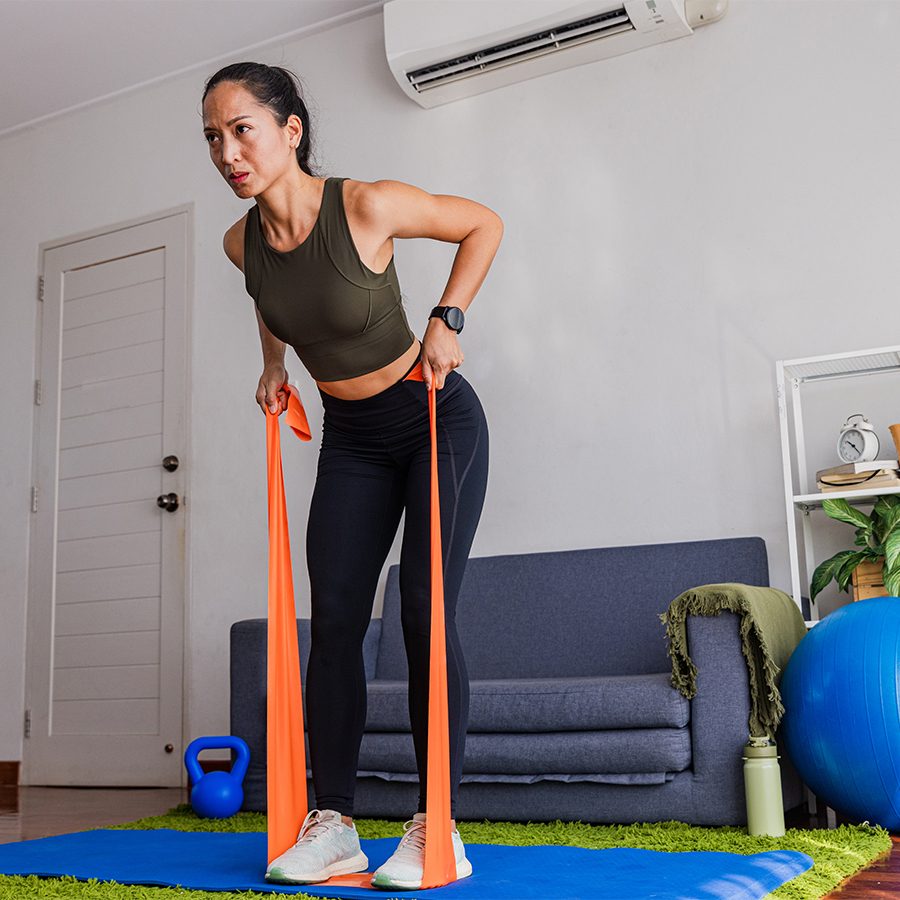
Credit:1shot Production/Getty Images
Improve your strength to help with everyday tasks
It's not just professional athletes and regular gym-goers who build muscle. We often overlook how much strength we need to use during our daily tasks, from lugging groceries home to getting on and off a bus. Increasing our overall strength is also vital for protecting ourselves from pain and injury, and being able to live independently as we get older.
A few ways to build muscle that work well both at home and at the gym include lifting weights, using resistance bands and making use of your own body weight. If you struggle with climbing stairs, sitting and getting up, one of the simplest, and best, lower body exercises is squats. Start with 10-15 reps for two or three sets and increase the count as it becomes easier to complete. Or, if a full squat is too challenging, simply practice controlled sitting and standing without using your hands while being mindful of which muscles you’re using.
If carrying heavy shopping bags and tidying up the house are tough on your body, try to squeeze in some push-ups. They’re one of the easiest upper-body exercises to get the hang of and make carrying things easier by improving the muscular strength in your arms, chest and shoulders. Don’t worry, if you don’t have enough strength to do a full push-up from the floor, start by leaning on a wall or chair. The further from the floor, the easier it’ll be.

Credit:Pixifly/Getty Images
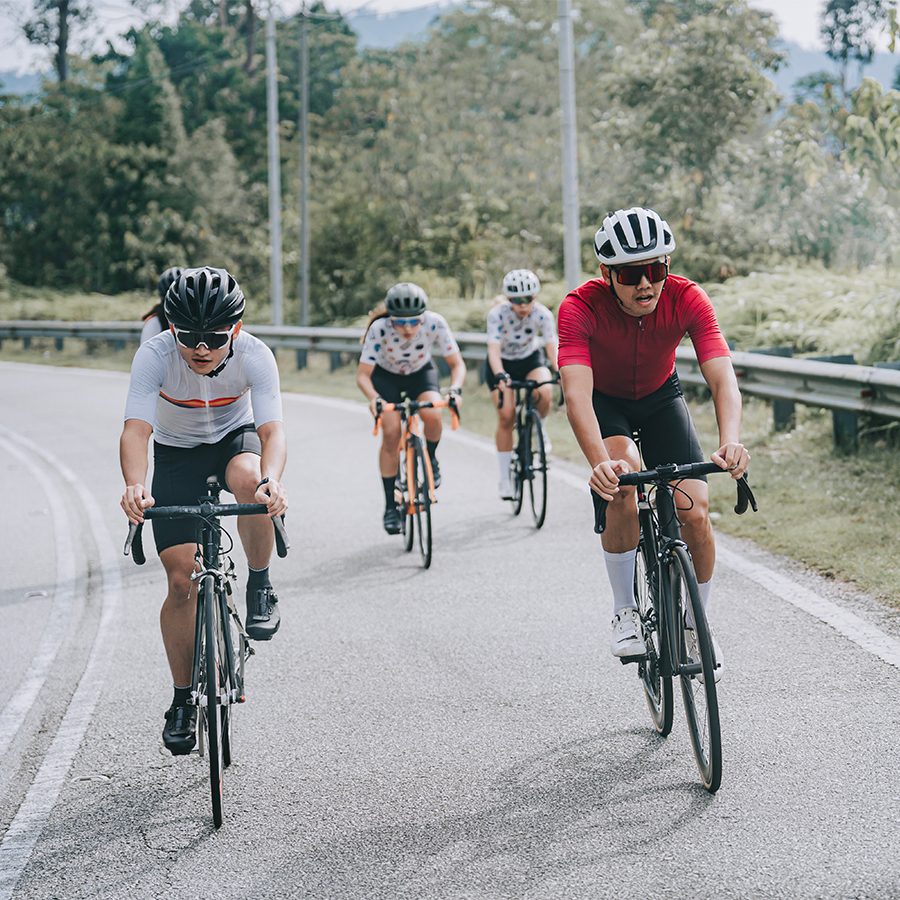
Credit:Edwin Tan/Getty Images
Get your heart pumping to boost your overall fitness
Endurance, or aerobic, exercises increase your heart rate, improving the function of your cardiovascular and respiratory systems to reduce the risk of diseases like type two diabetes and heart disease. Running, hiking, skipping and various ball or racquet sports including basketball and badminton all fit the bill.
If you feel discomfort or joint pain from doing these high-impact activities, you can switch it up occasionally with lower-impact exercises such as swimming or cycling, which are kinder on the joints.
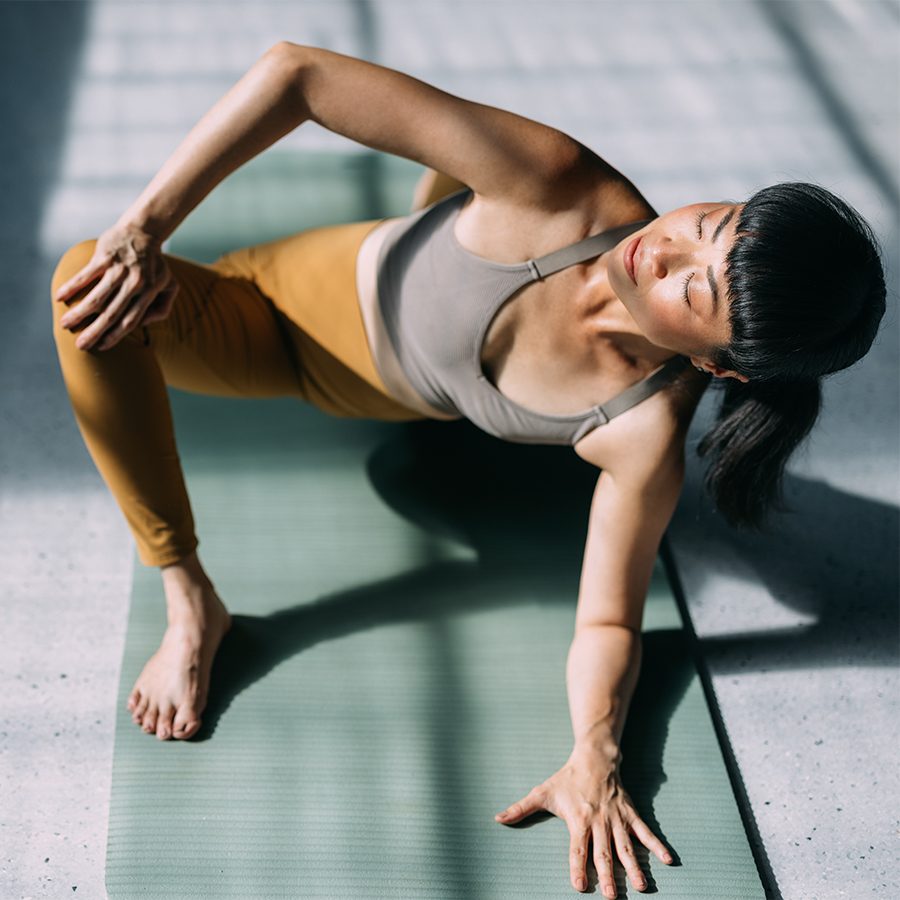
Credit:Fresh Splash/Getty Images
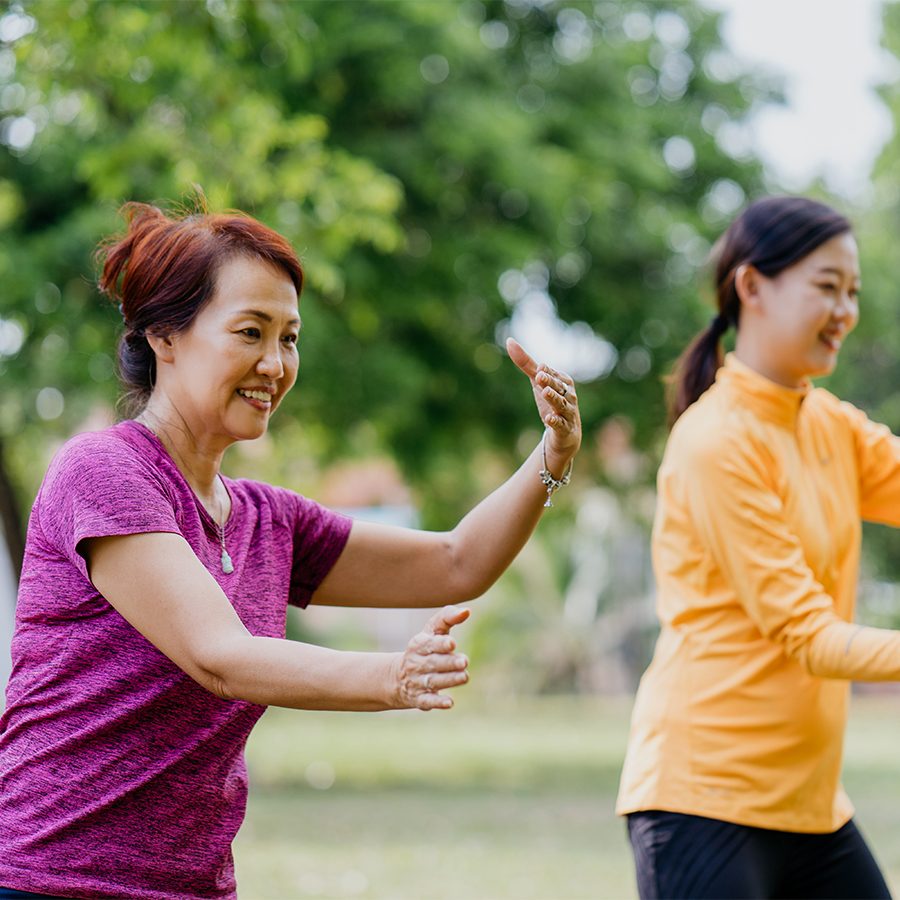
Credit:hxyume/Getty Images
Work on your balance and flexibility
Developing your balance and flexibility helps to prevent falls and improve mobility, which in turn will make everyday movements like bending down to pick things up or tying your shoes easier. Both tai chi and yoga are great full-body workouts for improving stability and are suitable for people of all ages. In addition, both make use of gentle movements and breath control, which can promote relaxation.
Besides tai chi and yoga, there are balance-targeting exercises you can do at any time. For example, stand on one leg for 30 seconds before switching sides and work towards balancing for a minute on each – you can use a chair for support if needed.
There are also a few simple stretches you can do when you feel tense (though make sure to first warm up your muscles with a walk or by moving around). These include the standing quadriceps stretch, the seated hamstring stretch and the calf stretch for the lower body, and for the upper body, the overhead side stretch and shoulder stretch.

Credit:Kiwis/Getty Images
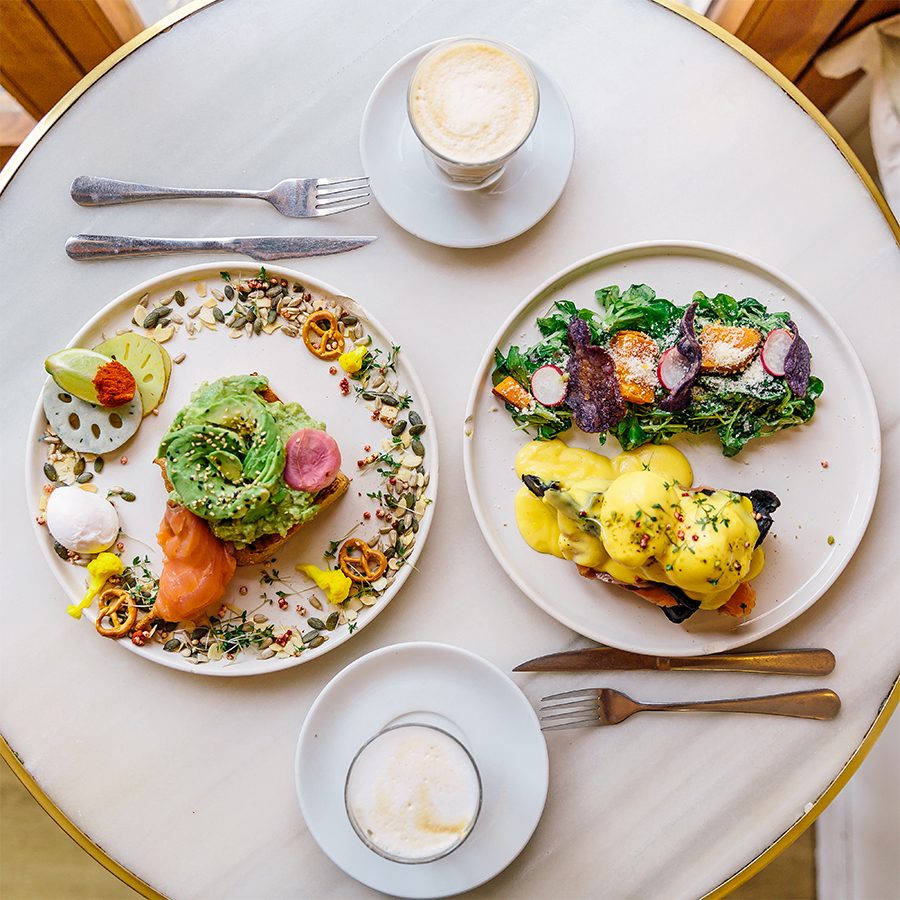
Credit:Alexander Spatari/Getty Images
Other health tips to keep in mind
Consistency is key. Hong Kong’s official guidelines quote the World Health Organisation ’s (WHO) recommendation of 150-300 minutes of moderate exercise per week, further suggesting that a daily 30-minute workout is beneficial for your health. So, it’s important to find ways that work for you to ensure the habit sticks.
Try slotting exercise into an established part of your schedule, or by keeping your physical activities interesting. For example, you could challenge yourself to balance on one foot when brushing your teeth or play team sports with your family and friends.
Additionally, proper rest, staying hydrated and maintaining a well-balanced diet are all essential for good health. Besides a variety of nutrients, having enough protein in your meals is important for muscle maintenance. Lean meats, eggs and tofu are all protein-rich foods you can incorporate more of into your diet.
Lastly, always listen to your body. Learn your body’s cues for when to push yourself and when to ease off if something doesn’t feel quite right – like many things, this will come naturally with practice.
More inspiration
- China – the Chinese Mainland, Hong Kong SAR, Macao SAR and Taiwan Region
- Hong Kong SAR - English
- Chinese Mainland (China) - English
- Taiwan China - English
- 香港特別行政區 - 繁體中文
- 中国內地 - 简体中文
- 中國台灣 - 繁體中文
- Africa
- South Africa - English
- Asia
- Bangladesh - English
- Korea - English
- Singapore - English
- Cambodia - English
- 한국 - 한국어
- Sri Lanka - English
- India - English
- Malaysia - English
- Thailand - English
- Indonesia - English
- Maldives - English
- ประเทศไทย - ภาษาไทย
- Indonesia - Bahasa Indonesia
- Myanmar - English
- Vietnam - English
- Japan - English
- Nepal - English
- Việt Nam - tiếng Việt
- 日本 - 日本語
- Philippines - English
- Australasia
- Australia - English
- New Zealand - English





.renditionimage.450.450.jpg)


